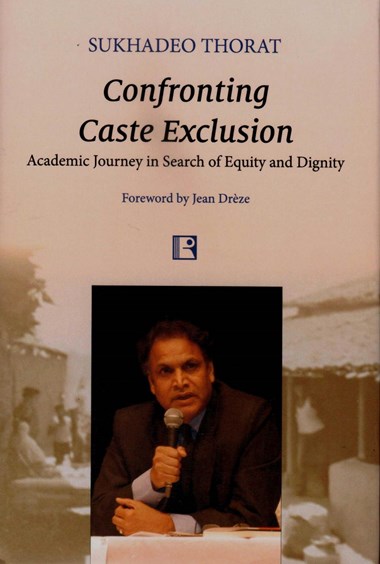- Publications
- Books
- Journals
- Journal of Social Inclusion Studies
- Dalit Asmita
- Research Papers
- Working Papers
- Papers Published
About Author
Sukhadeo Thorat, Professor Emeritus at Jawaharlal Nehru University, New Delhi. He holds the K.R. Narayanan Chair at Mahatma Gandhi University, Kottayam, Kerala, and was Ambedkar Chair Professor at the University of Calicut, Kerala. He is a former Chairman of the University Grants Commission and the Indian Council of Social Science Research, New Delhi. In recognition of his contributions to education and his service to the deprived sections of society, he was awarded the Padma Shri by the Government of India in 2008.
About the Book
This book encapsulates the academic enjoyment of Sukhadeo Thorat over the past 40 years. Thorat has been deeply involved in researching some of the most contentious issues of inter-group economic inequalities-particularly those linked to caste, tribe, religion, and gender-caste intersectionality.
The book presents Thorat’s lifelong research, condensed into seventeen articles, on the persistent poverty and deprivation faced by discriminated groups, and the roots of these issues in caste-based economic discrimination.
Innovatively, it offers insight into the sources and motivations behind caste economic discrimination, drawing on general economic theories of discrimination and more specifically, theories related to caste. Based on these theoretical frameworks and a wealth of empirical evidence on caste and untouchability-based economic discrimination, the book also reflects on remedies to address this deeply rooted and enduring problem.
Additionally, it explores a conceptual framework for studying caste-based economic discrimination and its consequences for poverty among marginalized groups-a resource that will be especially valuable to young researchers.
In today’s context of growing demands for caste, religion, and gender based policies, this book is both timely and essential reading for those engaged in research and policymaking on group inequalities and their remedies.
